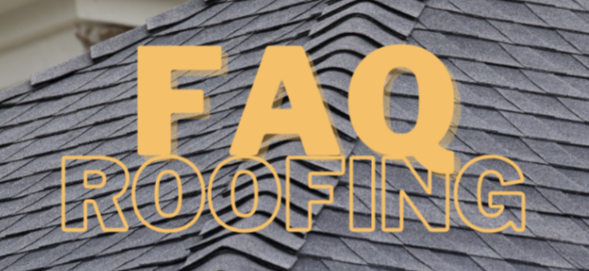Introduction
Welcome to our Roofing FAQ section. Here, we address common questions and concerns related to roofing, helping you make informed decisions about your roofing needs.
1. General Roofing Questions
Q: What types of roofing materials are available?
A: There are several types of roofing materials including asphalt shingles, metal roofing, clay and concrete tiles, slate, wood shingles and shakes, and synthetic roofing products.
Q: How do I choose the right roofing material for my home?
A: Consider factors such as your budget, the climate in your area, the architectural style of your home, and the material’s durability and lifespan.
Q: What is the average lifespan of different roofing materials?
A: Asphalt shingles typically last 15-30 years, metal roofing can last 40-70 years, clay and concrete tiles can last 50-100 years, and slate can last over 100 years.
2. Roof Installation
Q: What is the process of installing a new roof?
A: The process includes removing the old roof, repairing any damaged structures, installing the new roofing material, and cleaning up the site.
Q: How long does it take to install a new roof?
A: The duration depends on the size and complexity of the roof, but most installations take 1-3 days.
Q: Can a new roof be installed over an old one?
A: In some cases, yes, but it depends on the condition of the existing roof and local building codes. It’s often better to remove the old roof to inspect the underlying structure.
3. Roof Repair and Maintenance
Q: How can I tell if my roof needs repairs?
A: Look for signs such as missing or damaged shingles, leaks, water stains on ceilings, or sagging roof areas.
Q: What are the common signs of roof damage?
A: Common signs include cracked or curled shingles, moss or algae growth, and granules in gutters.
Q: How often should I have my roof inspected?
A: It’s recommended to have your roof inspected at least once a year and after major storms.
Q: What maintenance is required to keep my roof in good condition?
A: Regular maintenance includes cleaning gutters, removing debris, checking for damage, and ensuring proper attic ventilation.
4. Roof Replacement
Q: When should I consider replacing my roof?
A: Consider replacing your roof if it’s more than 20-30 years old, if it has extensive damage, or if it’s causing persistent problems.
Q: What are the benefits of replacing an old roof?
A: Benefits include improved home value, better energy efficiency, enhanced curb appeal, and increased protection from the elements.
Q: How much does roof replacement typically cost?
A: The cost varies widely depending on the material, size, and complexity of the roof. On average, it can range from $5,000 to $20,000.
5. Roofing Costs and Financing
Q: What factors influence the cost of a new roof?
A: Factors include the type of material, the size and pitch of the roof, labor costs, and any necessary repairs or upgrades.
Q: Are there financing options available for roofing projects?
A: Yes, many contractors offer financing options, and there are also home improvement loans and other financing methods available.
Q: How can I get an accurate roofing estimate?
A: Contact several reputable roofing contractors for quotes and compare them. Ensure they include all costs and potential additional expenses.
6. Weather and Roofing
Q: How do different weather conditions affect my roof?
A: Extreme weather such as heavy rain, snow, hail, and high winds can cause damage. Proper installation and maintenance are crucial for weather resilience.
Q: What type of roofing is best for extreme weather conditions?
A: Metal roofing, slate, and high-quality asphalt shingles are often recommended for their durability and resistance to extreme weather.
7. Warranties and Insurance
Q: What types of warranties are available for roofing?
A: Warranties vary by manufacturer and contractor but typically include coverage for materials and workmanship.
Q: Does homeowners insurance cover roof damage?
A: Homeowners insurance usually covers roof damage caused by unforeseen events such as storms or fires, but not wear and tear or neglect.
8. Choosing a Roofing Contractor
Q: What should I look for in a roofing contractor?
A: Look for licensed, insured contractors with good reviews, extensive experience, and strong warranties on their work.
Q: How do I know if a roofing contractor is reputable?
A: Check for credentials, read online reviews, ask for references, and verify their standing with the Better Business Bureau.
Q: What questions should I ask a potential roofing contractor?
A: Ask about their experience, licensing, insurance, warranties, project timeline, and for a detailed written estimate.
9. Sustainable and Energy-Efficient Roofing
Q: What are the options for sustainable roofing materials?
A: Options include metal roofing, recycled shingles, cool roofs, and green roofs.
Q: How can roofing contribute to energy efficiency?
A: Energy-efficient roofing materials can reflect more sunlight, reducing heat absorption and lowering cooling costs.


Leave a Reply